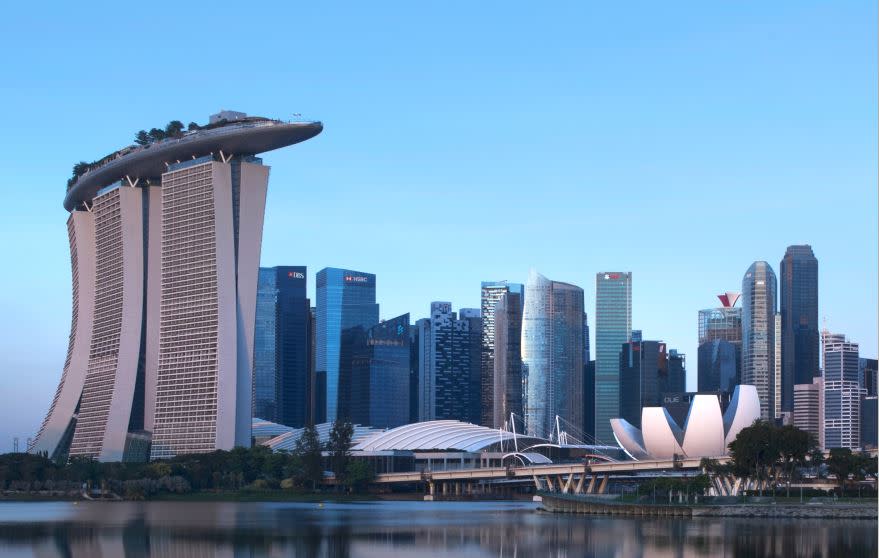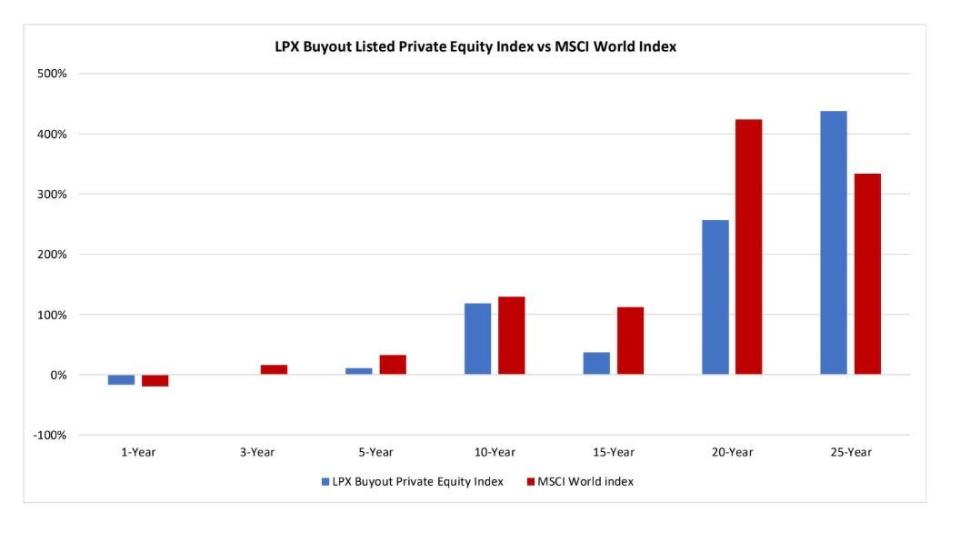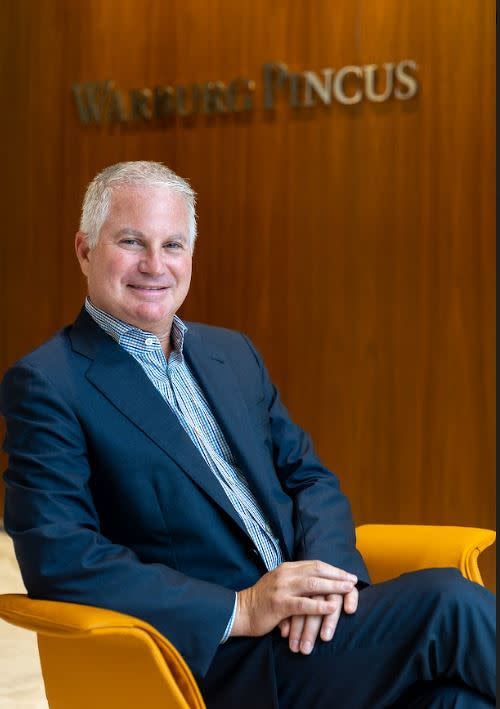Private capital, patient investing, building a business

Private equity provides better returns than public markets in the longer term. Here's why
Private equity is often viewed as the domain of institutional investors such as pension funds, sovereign wealth funds, insurance funds and very high net worth individuals. For instance, the Liechtenstein Princely family, through their private bank LGT Bank, invests in private equity.
Investing in private equity is for long term investors as some private equity funds are long dated with lifespans of 10 years or more. Indeed, returns from private equity depend somewhat on the vintage of the fund or investment. In recent years, Singapore retail investors have become familiar with private equity through Astrea bonds offered to them. The coupons on these bonds are backed by cash flows from private equity funds.
In addition to institutions, accredited investors, family offices and the investing public are increasingly familiar with private equity property funds. Over the past 20 years, the likes of CapitaLand, Mapletree Investments, Keppel Capital and ARA Asset Management (now part of the ESR Group) offered an array of private equity property funds.
In 2018, the Monetary Authority of Singapore allocated US$5 billion for management with private equity and infrastructure fund managers. The rationale for encouraging private equity to be managed out of Singapore is because of the business mentorship for start-ups, often helping these fledgling companies to grow and scale up their businesses, which in turn can benefit the start-up scene in Singapore.
In 2021, private equity AUM in Singapore rose 54% y-o-y to $375 billion compared to traditional AUM growth of 15%. Interestingly, based on data from Bloomberg, over the long term, private equity provides higher returns than the equity market.

In September this year, Charles (Chip) Kaye, group CEO of Warburg Pincus, met with The Edge Singapore for an exclusive interview at its offices on OUE Bayfront, overlooking Marina Bay, with Marina Bay Sands as the backdrop, to explain his company’s business of private equity and how his company’s strategy is differentiated from other private equity companies.
“Warburg Pincus started in 1966; we are one of the oldest and largest private equity firms in the world. We had a public equities business when the firm first started, which was sold to Credit Suisse in the late 1990s. The traditional business of the firm that it is known for, and which has grown substantially over time, is our private equity business,” he says.
The original concept of private equity is to find a company with talented people, for which Warburg Pincus can provide capital for, and with which Warburg Pincus can grow and build a business with.
Watch out for our full interview with Chip Kaye.

See Also:
Click here to stay updated with the Latest Business & Investment News in Singapore
Private markets to double to US$18.3 trillion by 2027, Preqin says
Fidelity, BlackRock cut fintech giant Ant’s valuation further
Get in-depth insights from our expert contributors, and dive into financial and economic trends

 Yahoo Finance
Yahoo Finance 